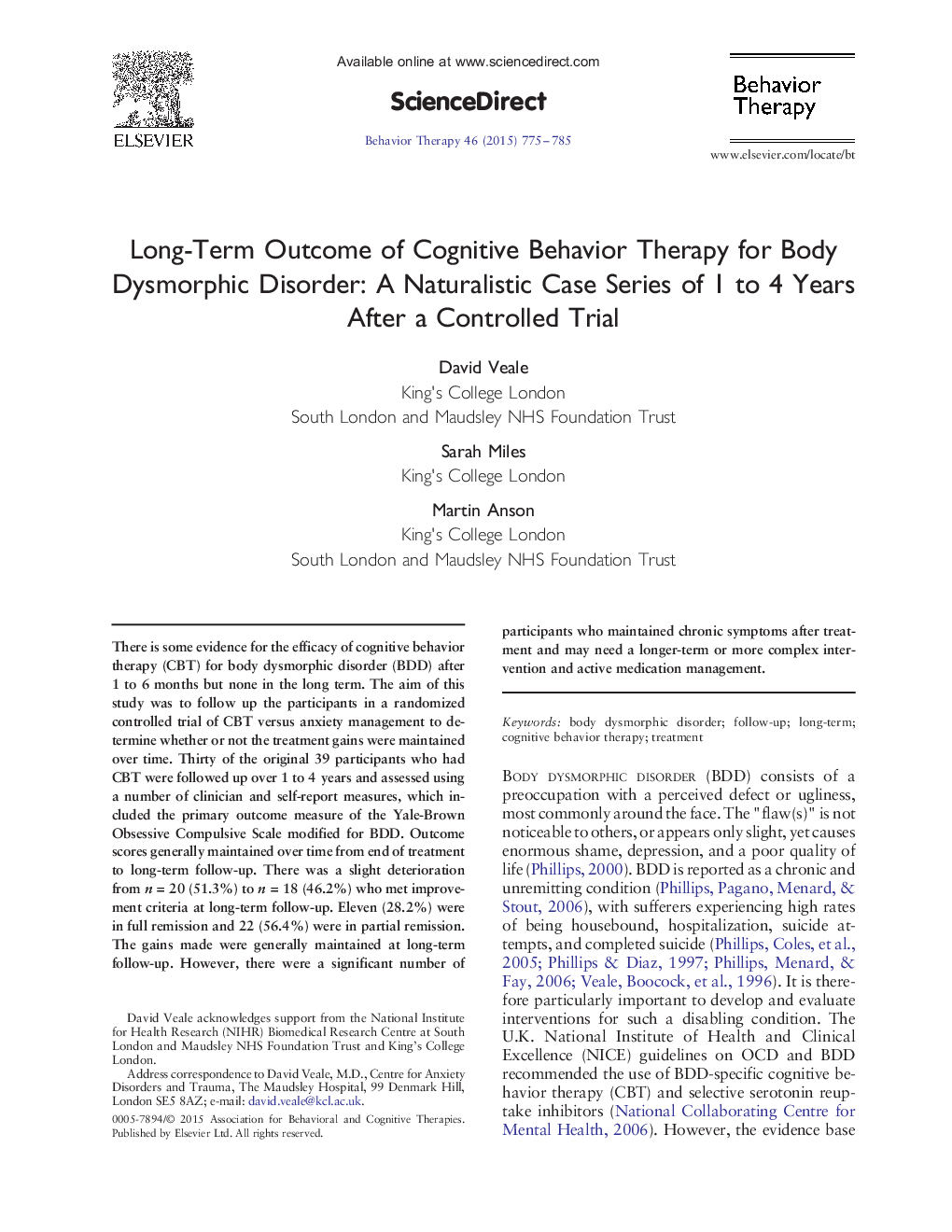| Article ID | Journal | Published Year | Pages | File Type |
|---|---|---|---|---|
| 901286 | Behavior Therapy | 2015 | 11 Pages |
•Effectiveness of CBT for body dysmorphic disorder is maintained after 1-4 years•11 out of 39 followed up were in full remission and 22 were in partial remission•Depression at baseline was associated with poorer outcome•Those with chronic BDD may need a longer or more complex intervention
There is some evidence for the efficacy of cognitive behavior therapy (CBT) for body dysmorphic disorder (BDD) after 1 to 6 months but none in the long term. The aim of this study was to follow up the participants in a randomized controlled trial of CBT versus anxiety management to determine whether or not the treatment gains were maintained over time. Thirty of the original 39 participants who had CBT were followed up over 1 to 4 years and assessed using a number of clinician and self-report measures, which included the primary outcome measure of the Yale-Brown Obsessive Compulsive Scale modified for BDD. Outcome scores generally maintained over time from end of treatment to long-term follow-up. There was a slight deterioration from n = 20 (51.3%) to n = 18 (46.2%) who met improvement criteria at long-term follow-up. Eleven (28.2%) were in full remission and 22 (56.4%) were in partial remission. The gains made were generally maintained at long-term follow-up. However, there were a significant number of participants who maintained chronic symptoms after treatment and may need a longer-term or more complex intervention and active medication management.
